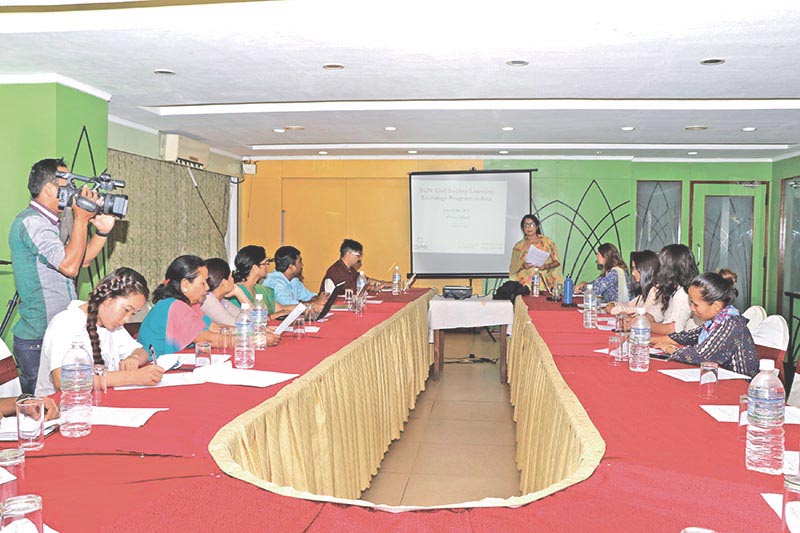Learning exchange programme under way
Kathmandu, July 18
A four-day learning exchange programme organised by Civil Society Alliance for Nutrition began here yesterday.
The programme aims to address malnutrition related issues and share best practices among civil society alliances in Scaling Up Nutrition member countries of Asia Region. Representatives from nine SUN countries of the region — Bangladesh, Cambodia, Indonesia, Laos, the Philippines, Myanmar, Kyrgyzstan, Pakistan and Nepal — are participated in the programme.
“During the programme, good practices, success stories and achievements of Nepal and other participant countries will be discussed, especially on the five following thematic sessions,” stated a press release issued by CSANN.
The thematic sessions include decentralised and sub-national level civil society coordination, citizen participation and bottom up advocacy through public hearings, nutrition budget analysis advocacy, breast milk substitute marketing code application and monitoring and coordination of regional efforts.
There is also a field visit programme in Methinkot, Kavre, for all participants with the purpose of practical learning experience. According to Global Nutrition Report 2016, in Asia, the double burden of malnutrition is severe with a rapidly increasing overweight and obesity problem in children under the age of five in the region. Yet at the same time the total number of children under five who are stunted totals 102 million.
According to a Food and Nutrition Technical Assistance study in 2014, 39.2 million children do not weigh enough for their height which means they are wasted. This is not just a health problem but an economic one too. The Global Nutrition Report 2016 estimates a loss of 11 per cent of gross domestic product every year in Asia as a result of malnutrition.
In Nepal improvements have been made but the recent national survey Nepal Demographic
Health Survey, showed that 36 per cent of children under five are too short for their age or stunted, 27 per cent are wasted which means they do not weigh enough for their height and 10 per cent are underweight.






